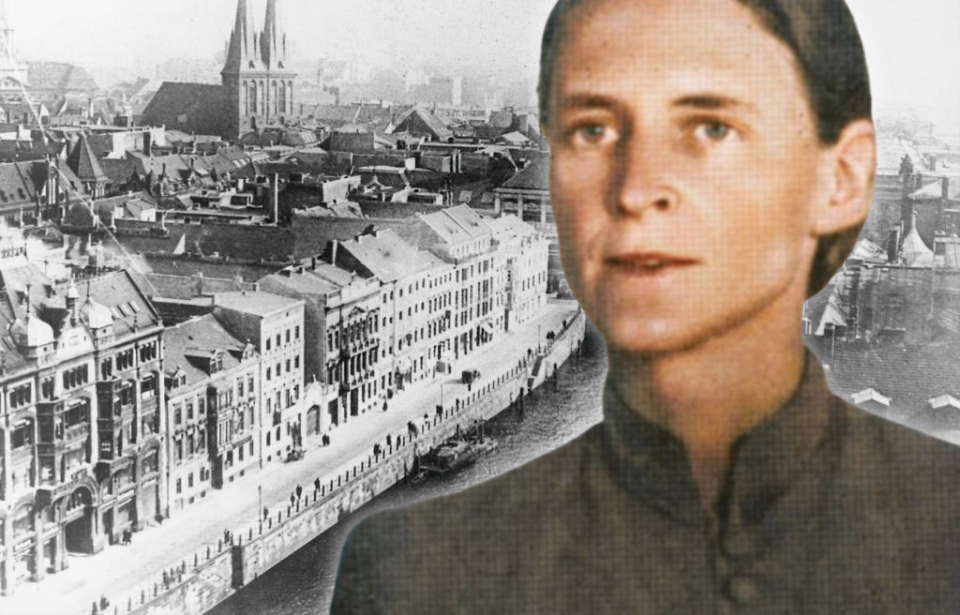During World War II and the years leading up to it, Resistance movements formed across Europe in response to Nazi occupation and control. These brave groups fought against oppression, often at great personal risk. Among the many courageous individuals involved was Mildred Fish-Harnack, an American living in Germany. She became a key figure in the underground Resistance, risking her life to support the fight for freedom and justice.
Mildred Fish-Harnack’s mother was a major influence
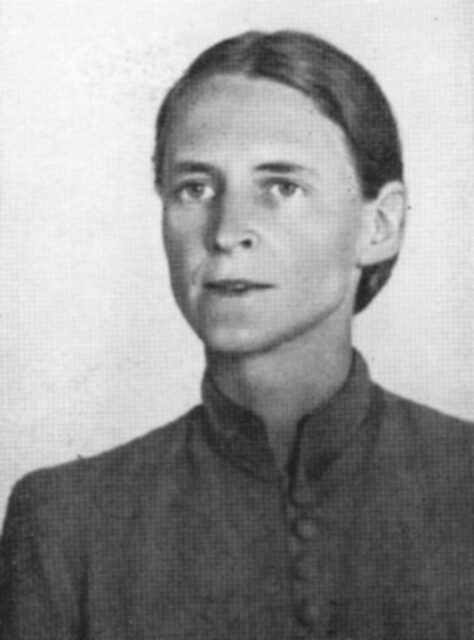
Fish-Harnack’s interest in English blossomed while she was at West Division High School, and she went on to study at George Washington University and later the University of Wisconsin. During her time in school, she delved into the works of Walt Whitman and Ralph Waldo Emerson, whose writings had a lasting impact on her own literary journey. It was also in these years that she became an even stronger advocate for social justice.
Making the move to Germany
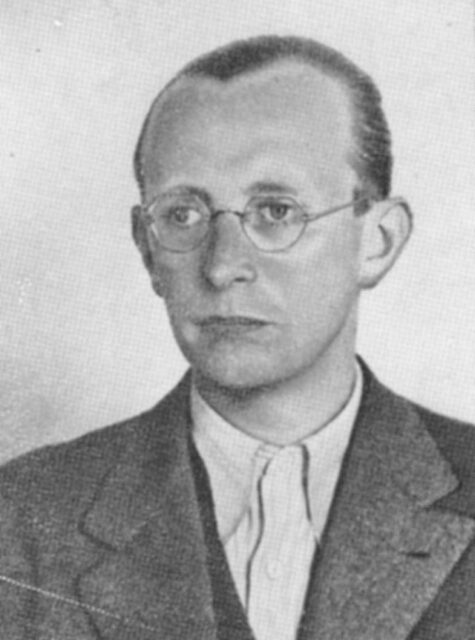
In 1926, Mildred Fish married Arvid Harnack, a German economist she had met while studying at the University of Wisconsin. Not long after their marriage, she moved with him to Germany, where he continued his academic career. Mildred also pursued further education, enrolling at the universities of Jena and Giessen to continue her studies.
When she arrived, Germany was already beginning to fall under the growing influence of the National Socialist German Workers’ Party. She witnessed its rise firsthand, as many of her professors and classmates openly supported the Nazi movement. Despite the political shift around her, Fish-Harnack remained dedicated to her academic path and later accepted a position as an assistant lecturer at the University of Berlin, where she taught English and American literature.
Her classes covered works by prominent authors like Theodore Dreiser and Thomas Hardy. She quickly earned a strong reputation for her teaching skills, and her enthusiasm for literature made her a favorite among her students.
Pursuing a career in literature
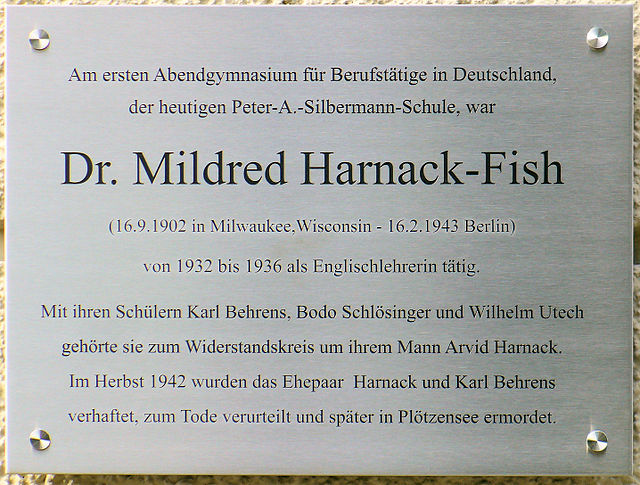
Mildred Fish-Harnack’s writing career thrived after she moved to Germany. She wrote essays about American literature, and her vivid style and sharp insights earned her widespread praise. Her talent was so impressive that some even compared her to the famous American novelist Thomas Wolfe.
As her reputation grew, her work was featured in German literary magazines. She used her influence to subtly criticize Germany’s shift toward dictatorship, earning respect in literary circles. She also became interested in the Soviet Union, where women had more rights than in the United States. Along with her husband, Arvid, she organized evening discussions about the Soviet economy and shared insights from these talks with her students.
Her critical view of the regime eventually cost Fish-Harnack her job as a lecturer at the University of Berlin. Shortly afterward, she and her husband became involved with the “Red Orchestra.”
Red Orchestra

The Red Orchestra was an underground Resistance group that emerged in Germany during the 1930s. With a membership made up of government officials, artists and intellectuals, it aimed to undermine the increasingly-oppressive regime through espionage and propaganda leaflets. It also helped Jewish individuals escape persecution.
Similar to other Resistance groups that operated throughout Europe during the Second World War, the Red Orchestra consisted of a network of cells. The vastness of the group meant that it eventually became infiltrated by enemy agents, but this didn’t stop members from continuing their duties, in the hopes of freeing Germany from the Führer‘s grasp.
Mildred Fish-Harnack was heavily involved in the Red Orchestra
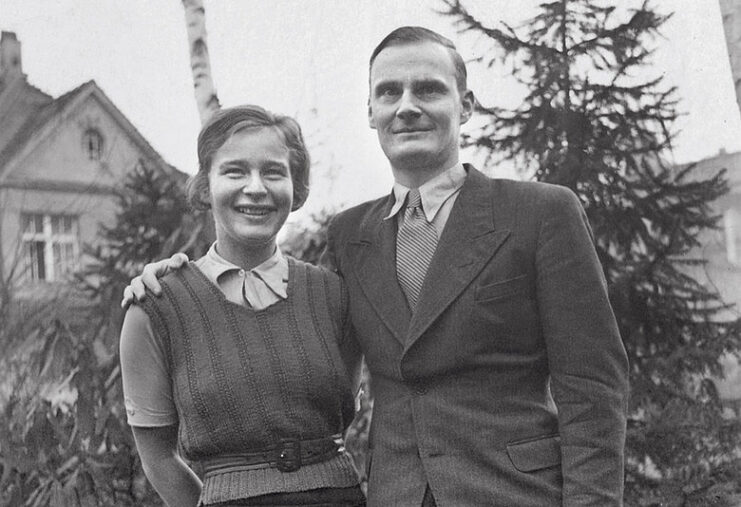
Mildred and Arvid Fish-Harnack were active in the Red Orchestra, with their fluency in English and German being a particular asset, as this allowed the group to communicate with Allied intelligence agencies. They participated in typical underground activities, such as distributing leaflets, and even connected with Lt. Harro Schulze-Boysen, a left-wing publicist and Luftwaffe officer who secretly documented German military efforts and forwarded them to the Soviets.
Among the couple’s most notable efforts with the Red Orchestra involved them doing the same thing, filtering German military plans to the Red Army, which, if caught, would have undoubtedly led to their immediate executions. There’s also evidence Fish-Harnack aided the Red Orchestra’s efforts to help Jews flee Germany. Along with sheltering them, she secured false documents and safe passage out of the country.
Mildred Fish-Harnack was executed for her Resistance work
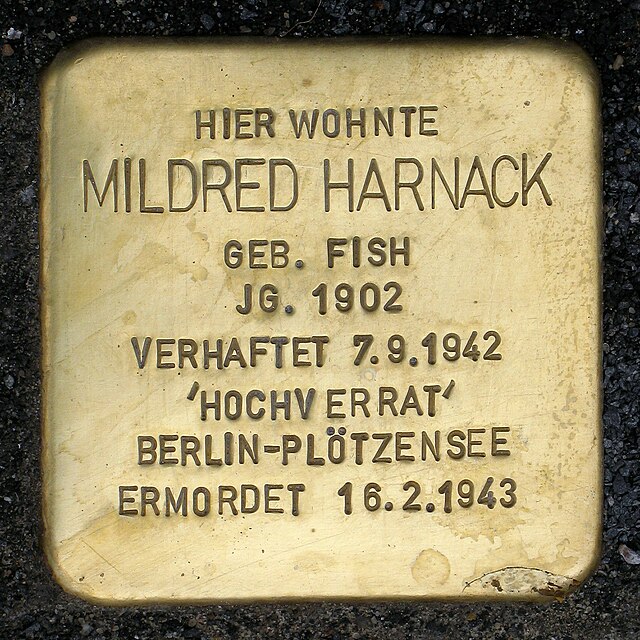
Mildred and Arvid Fish-Harnack’s involvement with the Red Orchestra led to their arrest by the Gestapo on September 7, 1942, while they were vacationing on the Baltic Sea. How did the authorities uncover their activities? The Funkabwehr had decrypted messages and intercepted radio transmissions detailing the extent of their espionage.
Initially sentenced to six years in prison, the Führer deemed the punishment too lenient and ordered a retrial. At the second trial, Mildred received a death sentence, which was carried out by guillotine at Berlin’s Plötzensee Prison on February 16, 1943.
Reportedly, her final words were, “Und ich habe Deutschland auch so geliebt,” meaning, “And I, too, so loved Germany.” Despite all she endured and the oppressive regime, she maintained her love for Germany and dreamed of liberating its people from tyranny.
A legacy that continues to be honored
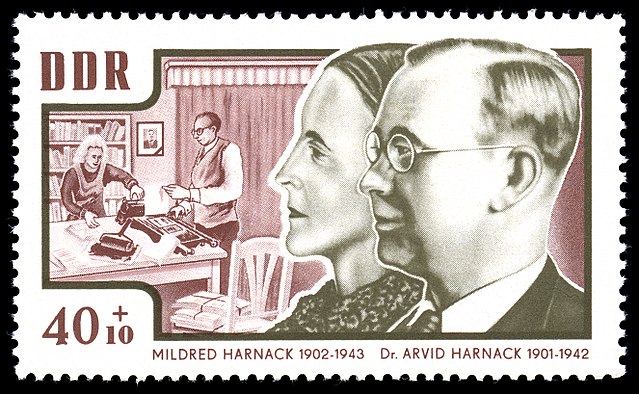
Despite newspapers learning about Mildred Fish-Harnack’s death upon the conclusion of World War II, the US government made a concerted effort to withhold information from the public, due to an investigation into whether her execution could be classified as a war crime. While they applauded her efforts, the case was ultimately closed, given she had been put on trial for her espionage work, making her prosecution “legally justifiable.”
More from us: Josefina Guerrero: The Philippine Spy Who Used Her Illness to Help the Allies Liberate Her Country
Fish-Harnack’s legacy of courage and resistance continues to inspire over 80 years after her death, with her life memorialized in many ways. In her home state of Wisconsin, schools observe Mildred Fish-Harnack Day, while a street in Berlin’s Friedrichshain neighborhood is named for her.
